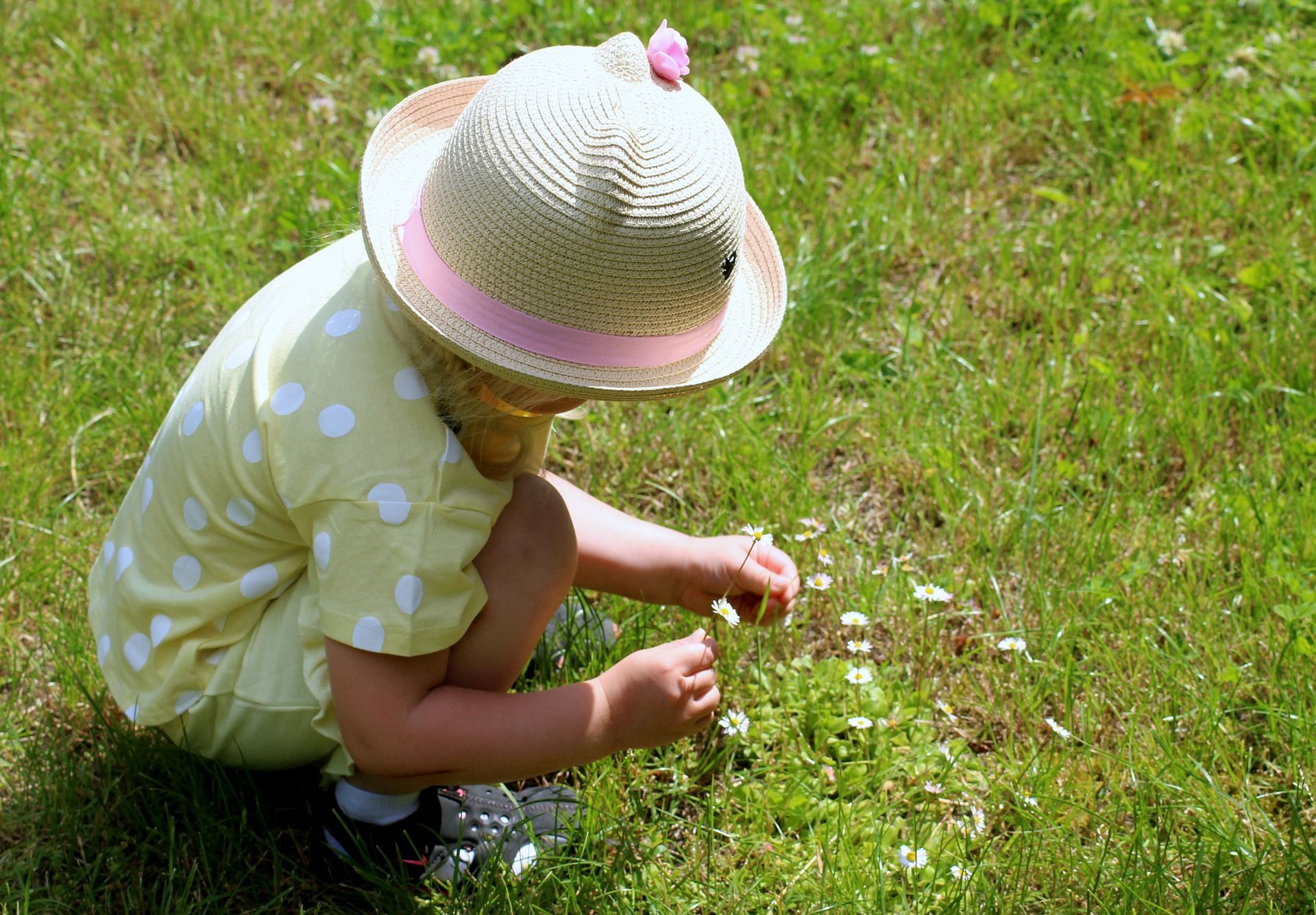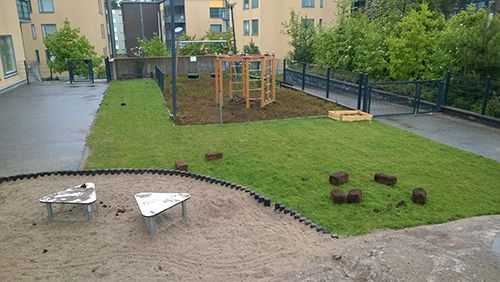
☘ Greener schoolyards can give children a better immune system
Preschool children got a stronger immune system when their schoolyard got more vegetation.
Share this story!
Schoolyards with more vegetation are not only more pleasant to look at, they are also more useful for the children. Many of us may have thought so intuitively, but now researchers at the Natural Resources Institute Finland have conducted a study that suggests that this is indeed the case.
The researchers took ordinary schoolyards with sand as a base and planted plants there instead. Under the swings and climbing frames, there were now forest plants such as heather and blueberry rice together with grass surfaces.

Here, 75 children aged 3-5 at ten preschools in Lahti and Tampere were allowed to play. The children also had to take care of plants that they planted in pallet collars in the yard.
The result was that the children who were allowed to play on green farms got a strengthened immune system in just one month. They also received a greater variety of beneficial microbes in the stomach compared to children who played in schoolyards without vegetation. Researchers now hope that schools around the world will see green schoolyards as an easy way to improve children's health.
Protective green
The schoolyards in all preschools should be turned into green areas as this improves the children's immune system in just one month. In addition, their motor skills and ability to concentrate are improved at the same time as they get a closer connection to nature, says Aki Sinkkonen, a researcher at the University of Helsinki and one of the researchers behind the study.
In more detail, the researchers discovered that the children got higher levels of TGF-β1-cytokine, which has a positive effect on the immune system, in the blood. The children also had lower levels of interleukin-17A, which is associated with immune disorders.
- This supports the thesis that contact with nature reduces the risk of problems with the immune system such as autoimmune diseases and allergies. We also saw that the microbiome in the stomach of children who played in the green schoolyards was similar to the biome of children who played in the forest every day, says Marja Roslund, a researcher at the University of Helsinki and one of the researchers behind the study.
In the past, several studies have shown that children who grow up in a rural environment have a stronger immune system than children in cities. This study now shows that even children in cities can have a stronger immune system if they are only allowed to play in green environments five days a week.
By becoming a premium supporter, you help in the creation and sharing of fact-based optimistic news all over the world.


